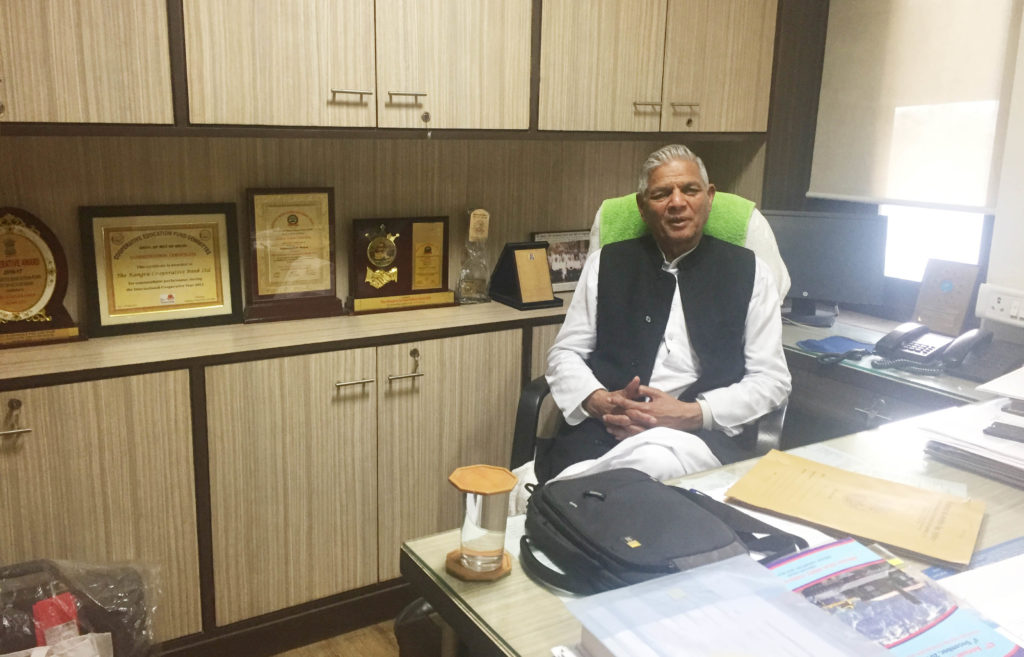Laxmi Dass, a well-known cooperator associated with urban cooperative banks from Delhi and a Nafcub Director of the outgoing board has demanded relaxation of the conditions of SAF (Supervisory Active Framework) which apply to an UCB.as soon as it errs.
Dass, who has been nominated by the urban co-op banks of Delhi as their nominee to contest in the upcoming NAFCUB elections in February said so in an informal chat with Indian Cooperative.
“Every year on 31st March RBI takes stock of a UCB’s economic parameters and we wait for its inspection results with baited heart”, Dass said explaining the terror of SAF. “We are not against SAF as such but the limitation it imposes on the operations of an UCB prevents any chance of its recovery from a financial crisis”, he added.
An UCB comes under SAF if its NPA crosses 10 percent and if its growth or profit goes down appreciably. Invoking the SAF, RBI stops banks from accepting deposits on the argument that it would lead to accrual of liabilities.
Dass argues that it if an UCB is stopped from accepting deposits or advancing loans how can it recover the losses? We need to be cautious no doubt, but in order to come out of the red we also need to do business, he stressed. “I am not against the SAF as such but only want its stringent conditions to be relaxed a bit”, he explained.
“I am strongly opposed to the dual control of UCB and a nominated BoM cannot be allowed to prevail upon an elected BoD”, underlined Laxmi Dass. The idea has an inbuilt contradiction in it, he stated.
Dass also wanted Indian Cooperative to bring before the concerned authorities the issue of migration of its Delhi members to other areas of NCR. Some of them live in Delhi but operate factories in Noida. Now there is no provision for NCR as a unit in cooperative. While Delhi’s Registrar of Co-operative expresses helplessness in the matter, our efforts to convince the Central govt of having a holistic policy in the matter has born no fruits so far.
The NCR Board or the Central govt should look into the matter and suggest a way out as we find our base being eroded everyday due to internal migration within the NCR and with our inability to open branches due to a policy paralysis in the govt, Dass lamented.
